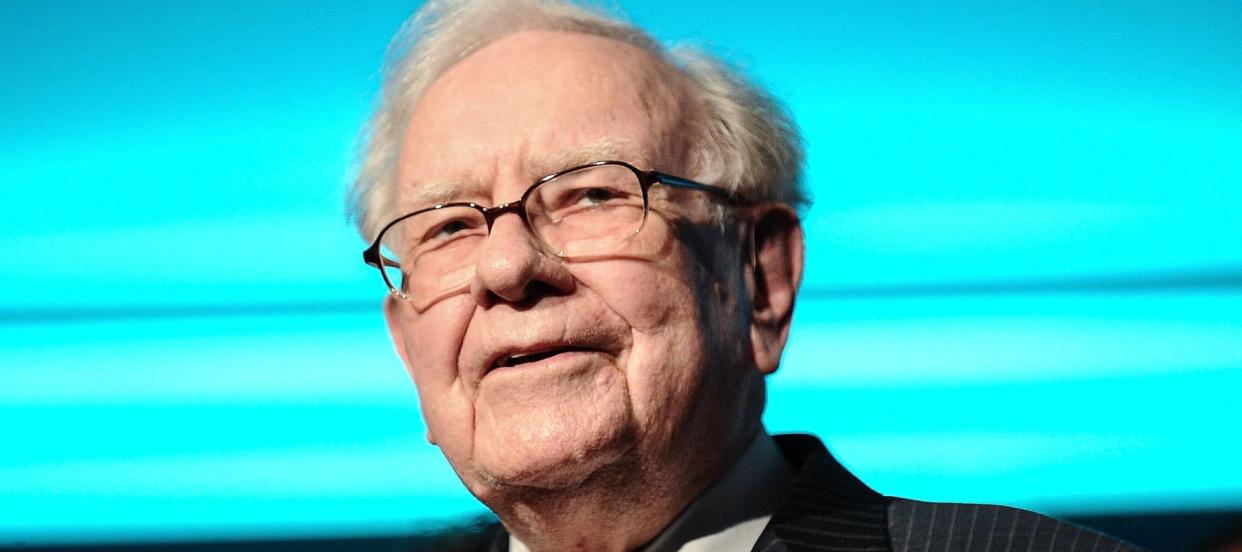Warren Buffett once said there are 'two kinds of items people buy' to grow their money — one of them 'really is investing' and the other is not. Which one are you doing?

If you’re looking for the definition of investing, there’s no better source than the world’s most famous investor, Warren Buffett.
In 2018, the Oracle of Omaha explained what he considers a real investment to Andy Serwer of Yahoo Finance. “There’s two kinds of items people buy and think they are investing,” he said. “One really is investing, and the other isn’t.”
Don't miss
Commercial real estate has beaten the stock market for 25 years — but only the super rich could buy in. Here's how even ordinary investors can become the landlord of Walmart, Whole Foods or Kroger
Car insurance premiums in America are through the roof — and only getting worse. But 5 minutes could have you paying as little as $29/month
These 5 magic money moves will boost you up America's net worth ladder in 2024 — and you can complete each step within minutes. Here's how
According to Buffett, the two items are real investments and speculative assets, and the difference depends on where the returns are generated. Understanding this could save you from gambling your wealth away.
Investing vs. speculating
Assets such as businesses, rental homes and farmland generate income organically for the owner, making them real investments. These investments can be made on a private basis.
“You don’t really care if the stock market is open,” Buffett told Serwer. “You look at the investment itself to deliver the return to you.”
In contrast, a speculative asset needs a market of buyers and sellers. For example, Bitcoin, art and vintage wine do not produce income organically, so the only way to derive a return is to sell it to someone else for more than you paid.
“If you buy Bitcoin or some cryptocurrency, you don’t really have something that produces anything. You’re just hoping the next guy pays more,” Buffett said.
This could explain why Berkshire Hathaway has avoided speculative assets such as cryptocurrencies or precious metals.
The key lesson for ordinary investors is that an investment-worthy asset should have robust earning potential. Here are some ways to apply this philosophy in your portfolio.
Read more: Car insurance rates have spiked in the US to a stunning $2,150/year — but you can be smarter than that. Here's how you can save yourself as much as $820 annually in minutes (it's 100% free)
Focus on earnings
If a genuine investment is an asset with organic earning potential, a good investment should produce high earnings or robust earnings growth.
According to Standard & Poor's, the S&P 500 currently offers an earnings yield of 3.38%. That means the 500 corporations within this index collectively generate $3.38 in net income for every $100 invested in an index fund.
However, only a portion of these earnings is returned to shareholders. The S&P 500’s dividend yield is 1.27%, meaning corporations retain much of what they earn.
If you favor dividends, the SPDR Portfolio S&P 500 High Dividend ETF (SPYD) focuses on the top 80 high dividend-yielding companies within the S&P 500 Index. Top holdings include dividend stars such as Iron Mountain (IRM), Citigroup (C) and Morgan Stanley (MS). The fund’s Standardized Yield is currently 4.48% — significantly higher than the S&P 500 average.
Investors who prefer to generate property and rental income could look to Real Estate Investment Trusts (REITs). For example, Realty Income Corporation has a portfolio of 15,450 properties across the United States, the U.K. and several other European countries. The REIT offers an attractive dividend yield of 5.50% and is also a Dividend Aristocrat, meaning it has expanded dividend payouts for at least 25 consecutive years.
By Buffett’s standards, any of these income-producing investments would be better than a hyped-up speculative asset with no earnings potential.
What to read next
Cost-of-living in America is still out of control — use these 3 'real assets' to protect your wealth today, no matter what the US Fed does or says
Jeff Bezos and Oprah Winfrey invest in this asset to keep their wealth safe — you may want to do the same in 2024
Stop crushing your retirement dreams with wealth-killing costs and headaches — here are 10 'must-haves' when choosing a trading platform (and 1 option that has them all)
This article provides information only and should not be construed as advice. It is provided without warranty of any kind.
